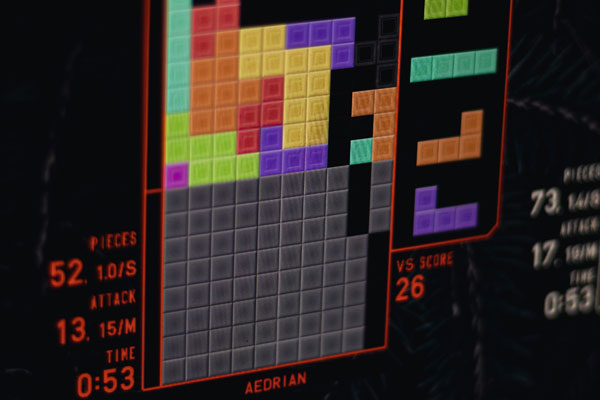Miracle of 13-year-old boy setting Tetris all-time high score, astonishes the gaming world

[Image of Tetris game, Credit to Unsplash]
13-year-old Willis Gibson from Oklahoma, USA, achieved a groundbreaking achievement by witnessing a “kill screen” at level 157, where coding restrictions prevent further gameplay.
This achievement, reported by The New York Times on December 21, 2023, is remarkable as the “kill screen” achievements have typically been attained by AI players, making Gibson the first human player to break this record.
The achievement was streamed live online.
Willis began collecting equipment for playing Tetris in 2021, expressing his fascination with the game's simplicity.
Initially, he started playing Tetris as a hobby, but eventually got charmed by the game’s simplicity.
In emphasizing Tetris’ charm, he stated, "It's the simplest game, but mastering it is really challenging."
Despite the game’s simple rules, it demands deep strategy and excellent reflexes, exemplifying Gibson’s exceptional gaming skills.
The gameplay involves stacking seven different blocks, clearing lines by filling out one or more horizontal lines, and playing until the blocks reach the top.
Clearing more lines gives the player more points, and the longer a player stays in the game, the higher the score rises.
A long-standing popular game, Tetris is recognized globally as a classic with iconic background music.
In 1993, Tetris made history as the first video game played in space, leaving an indelible mark on the history of mobile gaming.
Listed in the Guinness Book as the "Most Ported Video Game" and the game with the "Most Official and Unofficial Variants," Tetris holds the second position among the world's best-selling games, boasting an impressive record of 170 million copies sold.
The substantial number of sales indicates the enduring popularity and the history of this title.
The game was originally developed in 1985 by Alexey Pajitnov, a programmer working at the Dorodnicyn Computer Center of the Soviet Academy of Sciences (now the Russian Academy of Sciences).
Pajitnov coined the game's title "Tetris" by combining the Greek numerical prefix “Tetra” with his favorite word from tennis.
Tetris was not initially recognized due to Soviet authorities that assumed it was an addictive creation.
However, it gained recognition and popularity as it successfully entered North America.
The game's addictive nature is attributed to the Zeigarnik effect, where players are driven by the constant desire to create new unfinished tasks.
Although Tetris was published on various platforms by different companies, its widespread recognition soared in 1989 when it formed an exclusive partnership with Nintendo's Game Boy.
Since then, Tetris has solidified its status as one of the greatest video games ever created.
Pajitnov expressed his ambition to bring happiness to people through computers by stating, "Through games, people can get to know each other better and play a role in revealing things that are generally not recognized, such as ways of thinking."
This puzzle game has now become a legendary part of video game history.
Recognized as an E-sports, Tetris hosts the Classic Tetris World Championship, where the world's top Tetris players gather annually to compete for the world champion title.
The tournament primarily focuses on the classic version played on the NES (Nintendo Entertainment System).
While esports events are generally smaller in scale, the CTWC gained popularity online, though it domestically remains less known.
Willis's achievement has sparked significant excitement among gamers, inspiring many. Particularly, his success in an area traditionally dominated by artificial intelligence holds greater significance.
Willis's Tetris accomplishment offers a fresh perspective on the challenging aspect of gaming, emphasizing its value as a sport that requires skill and strategic depth beyond mere entertainment.

- Hyun Been Bae / Grade 11
- Woodberry Forest School

![THE HERALD STUDENT REPORTERS [US]](/assets/images/logo_student_us.png)
![THE HERALD STUDENT REPORTERS [Canada]](/assets/images/logo_student_ca.png)
